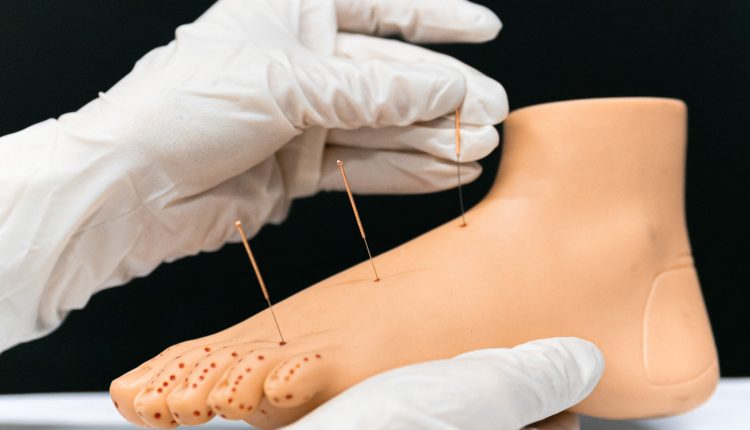The Comprehensive Training Journey to Become an Acupuncturist

Acupuncture, an ancient form of alternative medicine, has gained immense popularity in recent years as an effective treatment for various health conditions. Acupuncturists are healthcare professionals who specialize in this holistic healing practice. If you are considering a career as an acupuncturist, it’s essential to understand the comprehensive training and education required to become a licensed and certified practitioner. In this article, we will explore the various aspects of the training journey for acupuncture, including degree programs, certification, and the importance of hands-on experience.
1. The Basics of Acupuncture:
Acupuncture is a form of medicine that originated in ancient China. It involves inserting thin needles into specific points on the body, known as acupuncture points or acupoints. The theory behind acupuncture is that stimulating these points can balance the body’s energy flow, known as Qi, and promote healing.
2. Education and Degree Programs:
Becoming an acupuncturist starts with obtaining a relevant education. Prospective students can enroll in accredited acupuncture schools or programs that offer specialized training in acupuncture and Oriental medicine. These programs cover a wide range of subjects, including acupuncture techniques, traditional Chinese medicine (TCM), diagnosis, treatment, and the philosophy behind acupuncture.
3. Acupuncture Schools and Programs:
Several renowned institutions across the United States offer comprehensive acupuncture programs. One such institution is the Pacific College of Oriental Medicine, which provides in-depth training in acupuncture, Chinese medicine, and other alternative therapies. Bastyr University is another reputable institution offering programs in acupuncture and Oriental medicine.
4. Duration of Training:
The training duration for becoming an acupuncturist can vary depending on the program and degree level. A typical master’s degree program in acupuncture may take around three to four years to complete. During this time, students learn both the theory and practice of acupuncture, gaining hands-on experience under the guidance of experienced practitioners.
5. Master’s Degree in Acupuncture:
A master’s degree in acupuncture is one of the most common educational paths for aspiring acupuncturists. This degree equips students with the knowledge and skills needed to become competent practitioners. The curriculum includes courses in acupuncture techniques, TCM theory, herbal medicine, diagnosis, and ethics.
6. Acupuncture Certification:
After completing the educational requirements, acupuncturists must obtain certification to practice legally. The National Certification Commission for Acupuncture and Oriental Medicine (NCCAOM) is a widely recognized organization that offers certification for acupuncturists in the United States.
7. State Licensure:
In addition to national certification, many states require acupuncturists to obtain a state license to practice. Licensing requirements may vary from state to state, but generally, they include passing the NCCAOM certification exam and meeting specific educational and training criteria.
8. Importance of Practical Experience:
While classroom education is crucial, hands-on experience is equally vital for becoming a skilled acupuncturist. Many programs incorporate clinical rotations or internships, where students can gain practical experience by treating patients under supervision. This real-world experience helps students apply their theoretical knowledge and develop their acupuncture skills.
9. Continuing Education and Specializations:
The field of acupuncture is continually evolving, with new research and techniques emerging. Acupuncturists are encouraged to engage in continuing education to stay updated with the latest advancements and deepen their expertise in specific areas, such as medical acupuncture or sports acupuncture.
10. Career Opportunities:
Once licensed and certified, acupuncturists have various career opportunities. They can work in private practices, acupuncture clinics, integrative healthcare settings, or even in collaboration with traditional healthcare providers like chiropractors, naturopathic doctors, and physicians.
Conclusion:
Embarking on a journey to become an acupuncturist requires dedication, commitment, and a passion for holistic health. Through rigorous education, hands-on training, certification, and state licensure, aspiring acupuncturists can confidently step into their careers and make a positive impact on patients’ well-being. As acupuncture continues to gain recognition in the field of complementary and alternative medicine, licensed acupuncturists play an essential role in promoting health, relieving pain, and enhancing overall well-being.


Comments are closed.